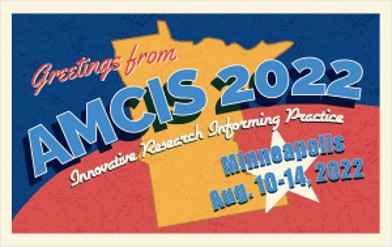SIG SAND - Systems Analysis and Design
Loading...
Paper Type
ERF
Paper Number
1615
Description
Distributed ledger technology (DLT) has been salient in research and practice for over a decade, with substantial investments in numerous areas. Still, the absence of a rapid, industry-wide success fuels skepticism and numerous decision frameworks emerged focusing on how to scaffold DLT utilization. However, a consideration of needs, added value, and integrative design of DLT-based systems remains overlooked. By analyzing existing frameworks and DLT Proof-of-Concepts, we provide a research-in-progress decision framework for making evidence-based decisions on whether to use DLT and how to design a technology bundle for specific cases. Our main contribution centers on the focus on rapid collaborative prototyping. For applicability and validation, we implement the framework in an online questionnaire-like tool that generates a detailed report as a basis for an informed decision. While beneficial for academia and practice, our framework draws clear directions for future research on complementary tools, enhanced recommendations and the design of feasible DLT solutions for real world challenges.
Recommended Citation
Bueno Momcilovic, Tomas; Buchinger, Matthias; Delitz, Vincent; and Balta, Dian, "Decision Framework for Improved Distributed Ledger Technology Utilization" (2022). AMCIS 2022 Proceedings. 7.
https://aisel.aisnet.org/amcis2022/sig_sand/sig_sand/7
Decision Framework for Improved Distributed Ledger Technology Utilization
Distributed ledger technology (DLT) has been salient in research and practice for over a decade, with substantial investments in numerous areas. Still, the absence of a rapid, industry-wide success fuels skepticism and numerous decision frameworks emerged focusing on how to scaffold DLT utilization. However, a consideration of needs, added value, and integrative design of DLT-based systems remains overlooked. By analyzing existing frameworks and DLT Proof-of-Concepts, we provide a research-in-progress decision framework for making evidence-based decisions on whether to use DLT and how to design a technology bundle for specific cases. Our main contribution centers on the focus on rapid collaborative prototyping. For applicability and validation, we implement the framework in an online questionnaire-like tool that generates a detailed report as a basis for an informed decision. While beneficial for academia and practice, our framework draws clear directions for future research on complementary tools, enhanced recommendations and the design of feasible DLT solutions for real world challenges.
When commenting on articles, please be friendly, welcoming, respectful and abide by the AIS eLibrary Discussion Thread Code of Conduct posted here.



Comments
SIG SAND